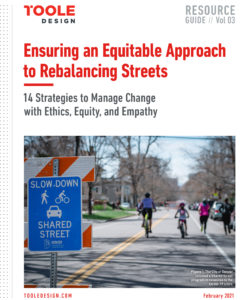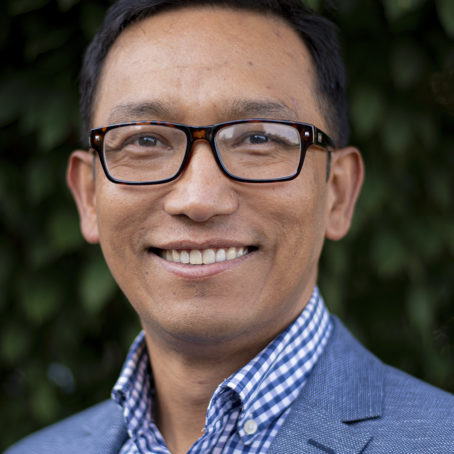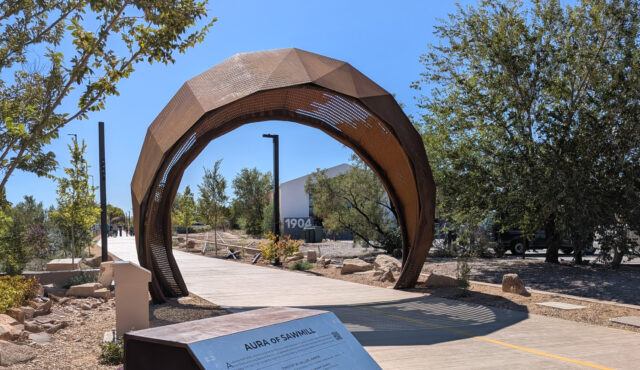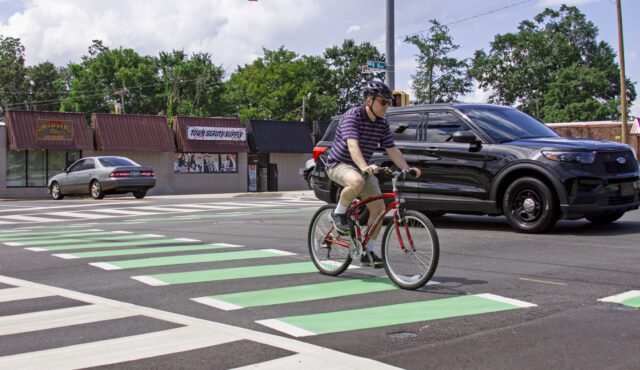Toole Design embarked on our Our Diversity, Equity and Inclusion (DEI) journey with an acknowledgement that diversity is essential to the future of the company. Examining our values and practices from the DEI perspective is not only the right thing to do, but also a step towards strengthening our performance, our ability to innovate, and our influence in the field of transportation planning and engineering. Advancing DEI is a fundamental reflection of our values as a company.
On December 21, 2017, 15 Toole Design staff members from offices across the U.S. and Canada attended the kickoff meeting of our first DEI Task Force, with the goal of integrating diversity and inclusion in our hiring process, operations, and projects. Task Force members were selected through an open call for participation. Selection was based on enthusiasm and interest as well as geographical and other considerations. Some of the key accomplishments of the task force in 2018 included:
- Refining the DEI mission of the company
- Educating staff on why DEI is critical to our work
- Identifying our strengths and weaknesses
- Establishing a roadmap for our DEI journey by identifying tasks and forming working groups to accomplish them.
During 2019, the company developed and delivered a three-hour in-person training for all staff on DEI fundamentals and implicit bias; today, we provide a virtual version of this to all new staff. It was the first opportunity for our staff to talk openly about biases that we all bring to the workplace, and how to make each person who comes to work at Toole Design feel welcomed and free to express themselves, no matter their background. The training reinforced our commitment to incorporate DEI in all aspects of the company. Since then, the DEI Working Groups have been working diligently towards realizing that goal.
The New E’s of Transportation
On the heels of establishing the DEI Task Force, internal discussions about our core values led us to question the conventional approach in our industry of relying on engineering, education, and enforcement to solve transportation problems. In September 2019, we launched a campaign – The New E’s of Transportation: Ethics, Equity and Empathy – to guide our work and shape our interactions with each other and with our clients. We strive to live by these values in our work every day.
Commitment into Action
During the past two years we have undertaken a variety of activities to advance DEI in our operations as well as our projects, including:
- RHR Action Plan: A Recruitment Hiring and Retention (RHR) Working Group was established as a sub-set of the DEI task force. The group conducted extensive interviews with our BIPOC staff and hiring managers and prepared a 30-point Action Plan for the company to follow. The plan includes actions for recruiting, hiring, and retention as well as updated processes, trainings, and reminders designed to promote and advance our DEI goals at every stage of an employee’s career at Toole Design. This meant changes to everything from the initial job application to procedures for a person’s last day of work at the company.
- Role play for all staff: A DEI-focused role play session was organized for all staff to experience and learn from three different – and potentially difficult– scenarios that they may face during the course of projects.
- Black History Month weekly reading list and discussions: Each week during February 2021, a recommended list of resources (e.g. relevant articles, research developments, TED talks) was shared with staff to raise awareness of critical issues such as freeway removal, urban renewal, and the role of planning and engineering professions. A group discussion on the topic was offered every Friday.
- A Teams channel and monthly meetings for BIPOC staff: We established private spaces for BIPOC and Black staff in Microsoft Teams by creating an exclusive channel where they can share their perspectives and experiences. We also have monthly calls, alternating between BIPOC and Black staff, where staff can share their unique experiences and celebrate different cultures and family traditions.
- Book club: In 2021, we organized a book club for company leaders to read How To Be An Antiracist by Ibram X. Kendi. Jennifer Toole led a weekly discussion on chapters of the book to encourage our leadership to share main takeaways from the book and learn from each other.
 Rebalancing Streets for People: As communities around the world opened their streets to people during the early days of the pandemic, we organized a webinar in April, 2020 on how to allocate street right-of-way to be centered on people and not on cars. More than one thousand people from around the world attended the webinar, confirming that many communities are striving to rebalancing the streets with modal equity in mind. In February 2021, we followed up with a free resource guide, “Ensuring an Equitable Approach to Rebalancing Street” that lists 14 strategies to center the New E’s in the rebalancing projects.
Rebalancing Streets for People: As communities around the world opened their streets to people during the early days of the pandemic, we organized a webinar in April, 2020 on how to allocate street right-of-way to be centered on people and not on cars. More than one thousand people from around the world attended the webinar, confirming that many communities are striving to rebalancing the streets with modal equity in mind. In February 2021, we followed up with a free resource guide, “Ensuring an Equitable Approach to Rebalancing Street” that lists 14 strategies to center the New E’s in the rebalancing projects.
Seeking Staff Input and Feedback
Throughout the journey, the Task Force and company leaders have sought to involve staff in gathering input, generating feedback, and identifying next steps. Our annual staff survey includes DEI-related questions and invites feedback on our progress to date. DEI goals are now a routine element in the development of office, operations, and practice area business plans. Our mentorship program is sensitive to the needs of BIPOC staff, and we conduct a biannual pay equity analysis.
Our Continuing Journey: Six DEI Working Groups
Moving forward, our DEI journey continues through six working groups made up of members of the DEI Task Force. The main tasks of the working groups are as follows:
![]() 1 – Office Culture: We acknowledge that for DEI work to be effective, it must be embraced by each of our 18 offices. As such, we are establishing DEI Office Leads who will implement local context-sensitive programs and serve as a DEI resource for project work.
1 – Office Culture: We acknowledge that for DEI work to be effective, it must be embraced by each of our 18 offices. As such, we are establishing DEI Office Leads who will implement local context-sensitive programs and serve as a DEI resource for project work.
2 – Inclusive Outreach: Outreach to communities we work with is grounded on understanding their concerns in the larger context of their lived experience, meeting them where they are and centering our approach on empathy. This working group is developing resources and guidance for local offices to tap into.
3 – Training Modules: Building on the DEI Fundamentals and Unconscious Bias training, we are working on three new training modules for staff at all levels. These trainings will focus on how to incorporate DEI in the vast array of project work we do, recognizing power dynamics in the decision-making process, and how to design with a focus on equity.
4 – Recruitment and Hiring: While we understand that diversity enriches the workplace culture, and is at the core of innovative solutions, we also acknowledge that working towards that goal is a long and intentional process. We have identified the core challenges in recruiting, including a limited pool of job applicants, and are putting systems and processes in place to address these challenges. This includes working more closely with HBCU’S, as well as many other actions to support our diverse staff.
5 – Project Tools: Whether it is a planning or a design project, DEI should be a key part of the conversation at each phase, from proposal and scope development to analysis and implementation. We are gathering best practices and establishing standard approaches that offer a blueprint for staff who are new to these issues.
6 – Communication: We will continue to share our DEI journey with our peers in the transportation space at periodic intervals to continue the conversation about equity. This may not be one big idea or a step, but rather a series of small steps in the right direction. Our industry must commit to taking those steps in order to serve our community more effectively and equitably.



